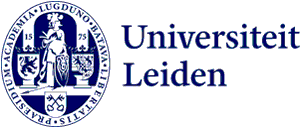“Tobacco playbook”
The “tobacco playbook” is a term used for a set of misinformation, lobbying and propaganda tactics employed by the tobacco industry to safeguard its business model following the discovery of the link between smoking and lung cancer. Universities and medical research were pivotal to these tactics, and similar tactics are employed by other industries, such as meat, chemicals and fossil fuels.
Part of the playbook was cultivating relations with universities and researchers. By associating their name with a university, harmful companies could leverage the positive image of the university, presenting themselves as legitimate partners. Following strong legislation against tobacco advertising and a decline in smoking, public perception of tobacco companies shifted. Eventually, universities stopped working with tobacco companies and accepting funding from them.
Learn lessons from the history of the tobacco industry
An interdisciplinary team of LU researchers, together with research bureau Solid Sustainability and campaign group Reclame Fossielvrij aim to learn lessons from the history of the tobacco industry and its relationship with academia which can be applied to other harmful industries such as chemical and fossil industries, in order to promote public health and sustainability.
This topic is very relevant for current debates on the ethics of university-industry collaborations, which are taking place in Leiden, across the Netherlands and internationally.
Understanding (mis)information and public opinion using qualitative methods.
Within the team a variety of methodologies will be applied: from archival research to freedom of information requests, to conducting interviews and surveys. As an anthropologist or sociologist, you will focus on understanding (mis)information and public opinion using qualitative methods.
Your specific focus will be decided together with the LU team and Solid Sustainability. It could center around one or more of the following questions:
- How do academics (students and scientists) view collaborations with various industries, which may or may not be harmful to scientific practical and societal benefit?
- When did Dutch universities and medical centers stop working with the tobacco industry? What were/are the reasons?
- How do researchers make the decision to stop collaborating with certain companies or industries?
- What is the role of the media and what can we learn from the media debate that took place around university ties with the tobacco industry?
- Does a decision from a university to cut ties influence government policy or is it rather the other way around?
- What can we learn for the current case of the fossil fuel industry?
